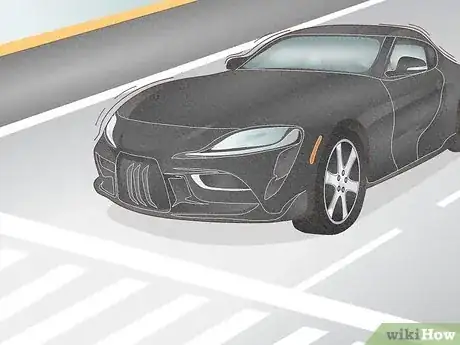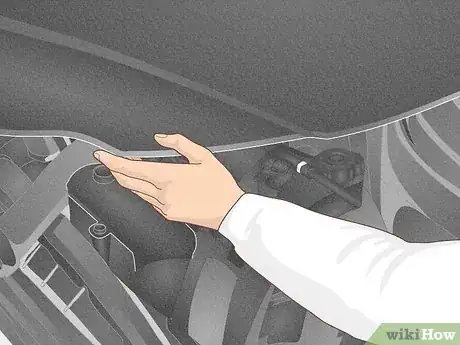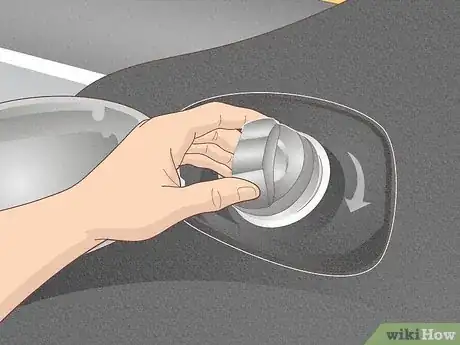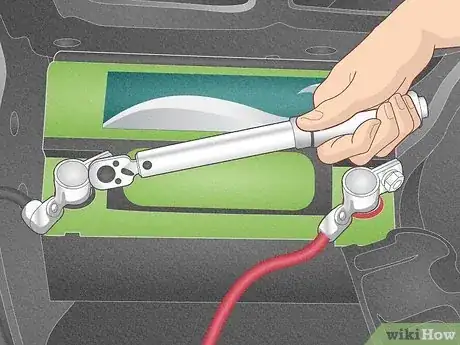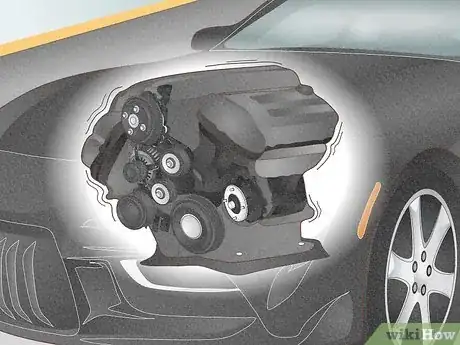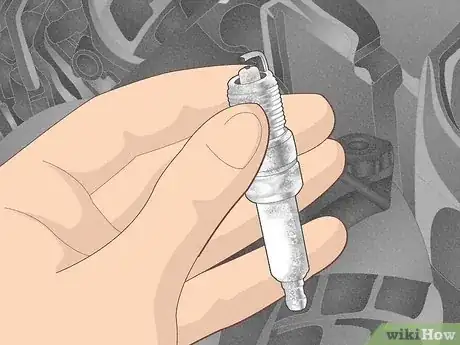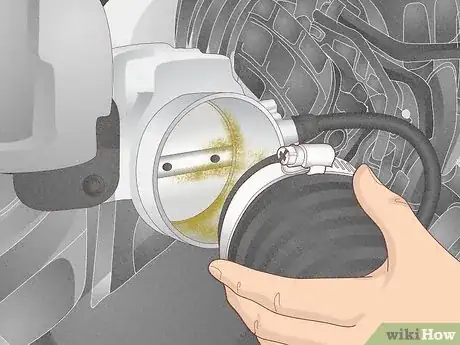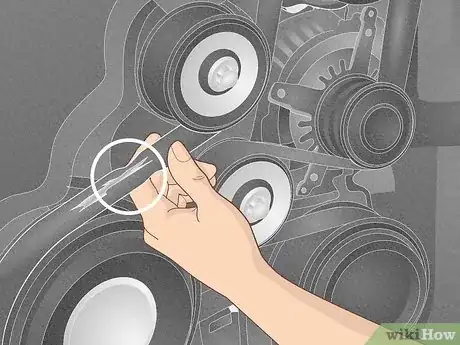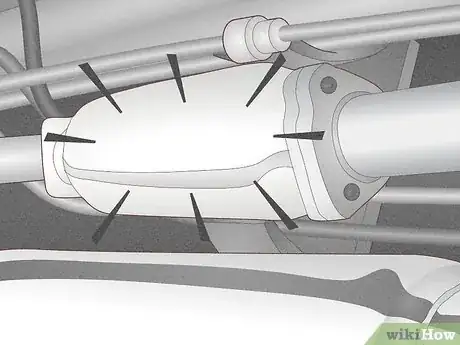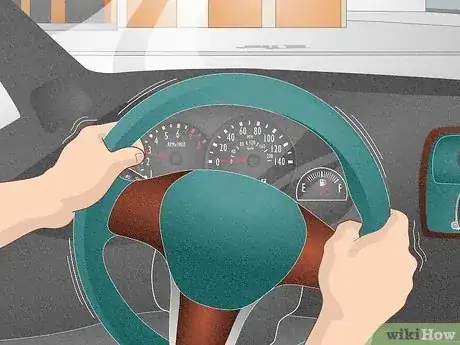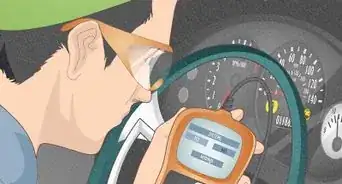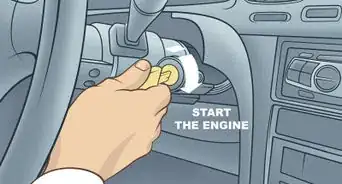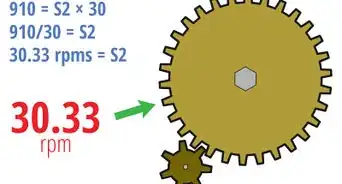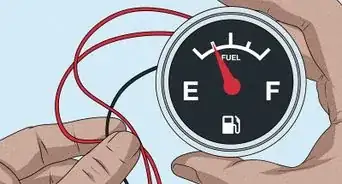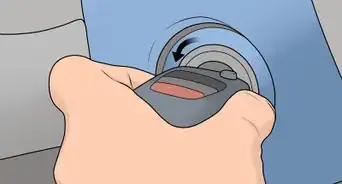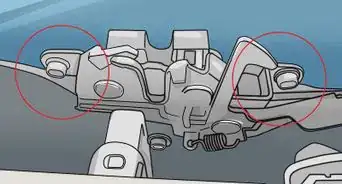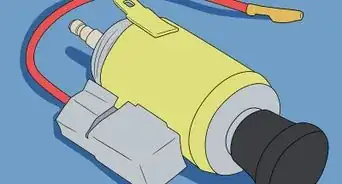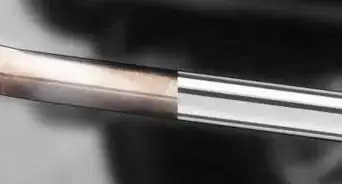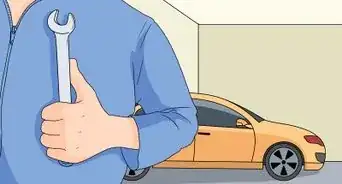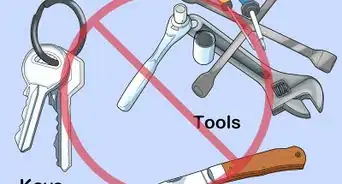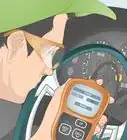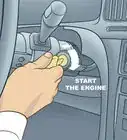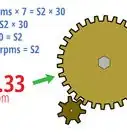This article was co-authored by Hovig Manouchekian and by wikiHow staff writer, Eric McClure. Hovig Manouchekian is an Auto Repair and Design Specialist and the Manager of Funk Brothers Auto, a family-owned business operated since 1925. With over 30 years of experience in the automotive industry, Hovig specializes in the process of auto repair and maintenance. He is also very knowledgeable in common automotive issues and needs including engine repair, battery replacement, and windshield accessory and maintenance. Hovig's knowledge and hard work have contributed to Funk Brothers Auto winning Angie's List Super Service Award for five consecutive years.
There are 12 references cited in this article, which can be found at the bottom of the page.
This article has been viewed 1,467 times.
If your vehicle starts rattling when your vehicle is idling, you may be worried that something serious is going on. The good news is that most of the potential causes here are inexpensive to fix and not uniquely dangerous for your car. Unfortunately, figuring out what’s causing this problem can involve a lot of guesswork and trial and error. In this article, we’ll outline what might be causing this, show you what to look out for, and explain what you can do to fix the problem.
Things You Should Know
- Slight vibrations at idle are normal, especially if you’ve got an older car. It’s only a problem if the shaking is intense or you have additional issues.
- Potential causes of a vehicle shaking at idle include a loose gas cap, loose battery cables, a worn throttle sensor, a damaged engine mount, or bad spark plugs.
- Perform a general inspection of your engine bay to look for damage. If you can’t repair the problem yourself, take the vehicle to a mechanic.
Steps
Expert Q&A
-
QuestionWhat are common possible causes of a misfire?
 Hovig ManouchekianHovig Manouchekian is an Auto Repair and Design Specialist and the Manager of Funk Brothers Auto, a family-owned business operated since 1925. With over 30 years of experience in the automotive industry, Hovig specializes in the process of auto repair and maintenance. He is also very knowledgeable in common automotive issues and needs including engine repair, battery replacement, and windshield accessory and maintenance. Hovig's knowledge and hard work have contributed to Funk Brothers Auto winning Angie's List Super Service Award for five consecutive years.
Hovig ManouchekianHovig Manouchekian is an Auto Repair and Design Specialist and the Manager of Funk Brothers Auto, a family-owned business operated since 1925. With over 30 years of experience in the automotive industry, Hovig specializes in the process of auto repair and maintenance. He is also very knowledgeable in common automotive issues and needs including engine repair, battery replacement, and windshield accessory and maintenance. Hovig's knowledge and hard work have contributed to Funk Brothers Auto winning Angie's List Super Service Award for five consecutive years.
Auto Repair & Design Specialist The most common culprit of an engine misfire is a lack of spark. The spark plug is the apparatus that controls that, and it's usually age or lack of maintenance that causes issues to flare up. There could also be an issue with the spark plug wire, which delivers the spark from the ignition coil to the spark plug, or an issue with the coil itself, which generates the electricity that's sent through the wire into the spark plug. More extensively, there could be combustion issues inside the engine.
The most common culprit of an engine misfire is a lack of spark. The spark plug is the apparatus that controls that, and it's usually age or lack of maintenance that causes issues to flare up. There could also be an issue with the spark plug wire, which delivers the spark from the ignition coil to the spark plug, or an issue with the coil itself, which generates the electricity that's sent through the wire into the spark plug. More extensively, there could be combustion issues inside the engine.
References
- ↑ https://www.mazdaoflodi.com/blog/why-does-my-car-rattle-when-i-stop/
- ↑ https://www.mazdaoflodi.com/blog/why-does-my-car-rattle-when-i-stop/
- ↑ https://www.pilotonline.com/news/article_e9ce77be-b9bb-5119-934a-bc8f3578378b.html
- ↑ https://drivecave.com/loose-battery-cable/
- ↑ https://youtu.be/deypkLZpRRk?t=43
- ↑ https://youtu.be/deypkLZpRRk?t=43
- ↑ https://youtu.be/deypkLZpRRk?t=307
- ↑ https://www.thedrive.com/maintenance-repair/37280/idle-air-control-valve
- ↑ https://youtu.be/deypkLZpRRk?t=678
